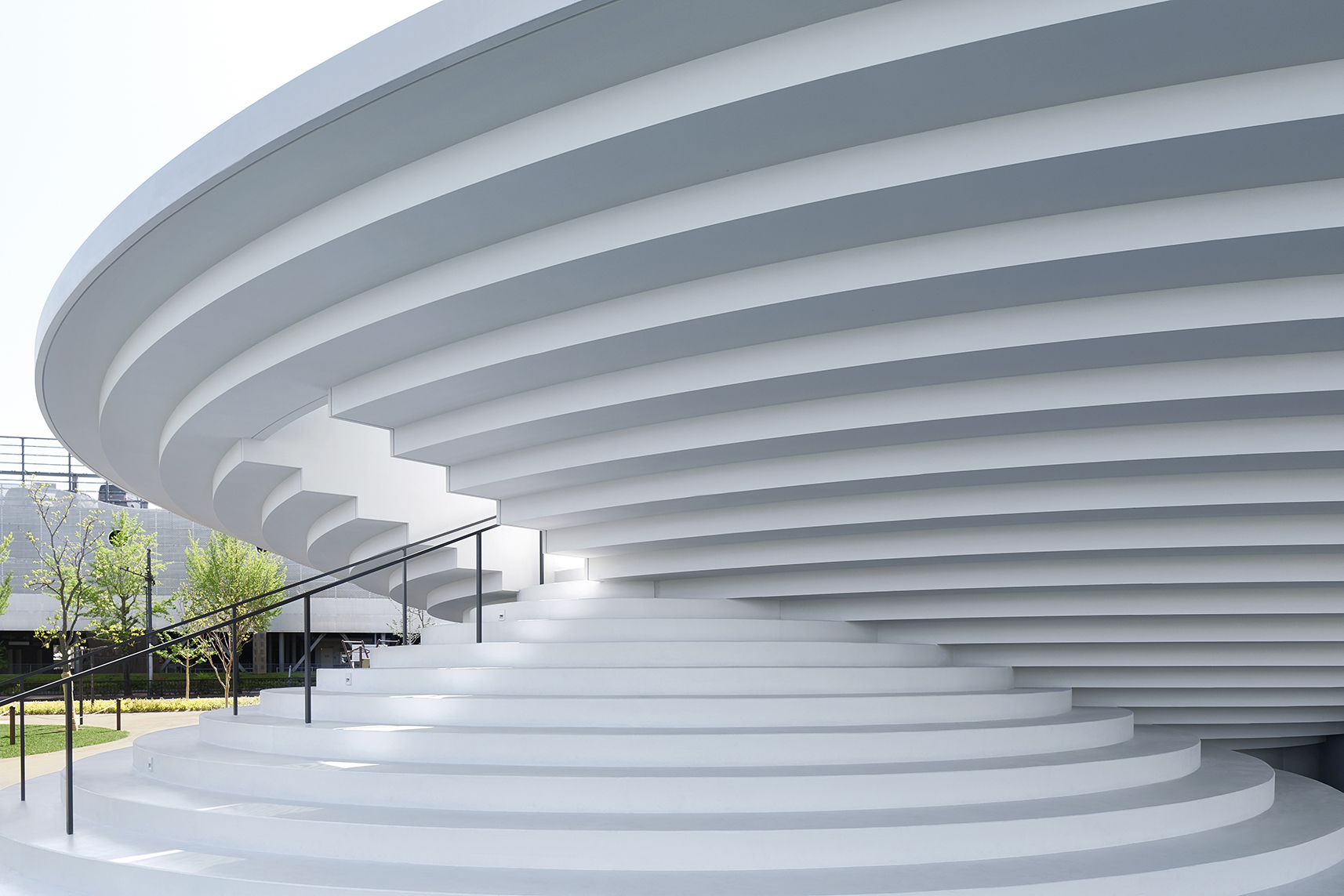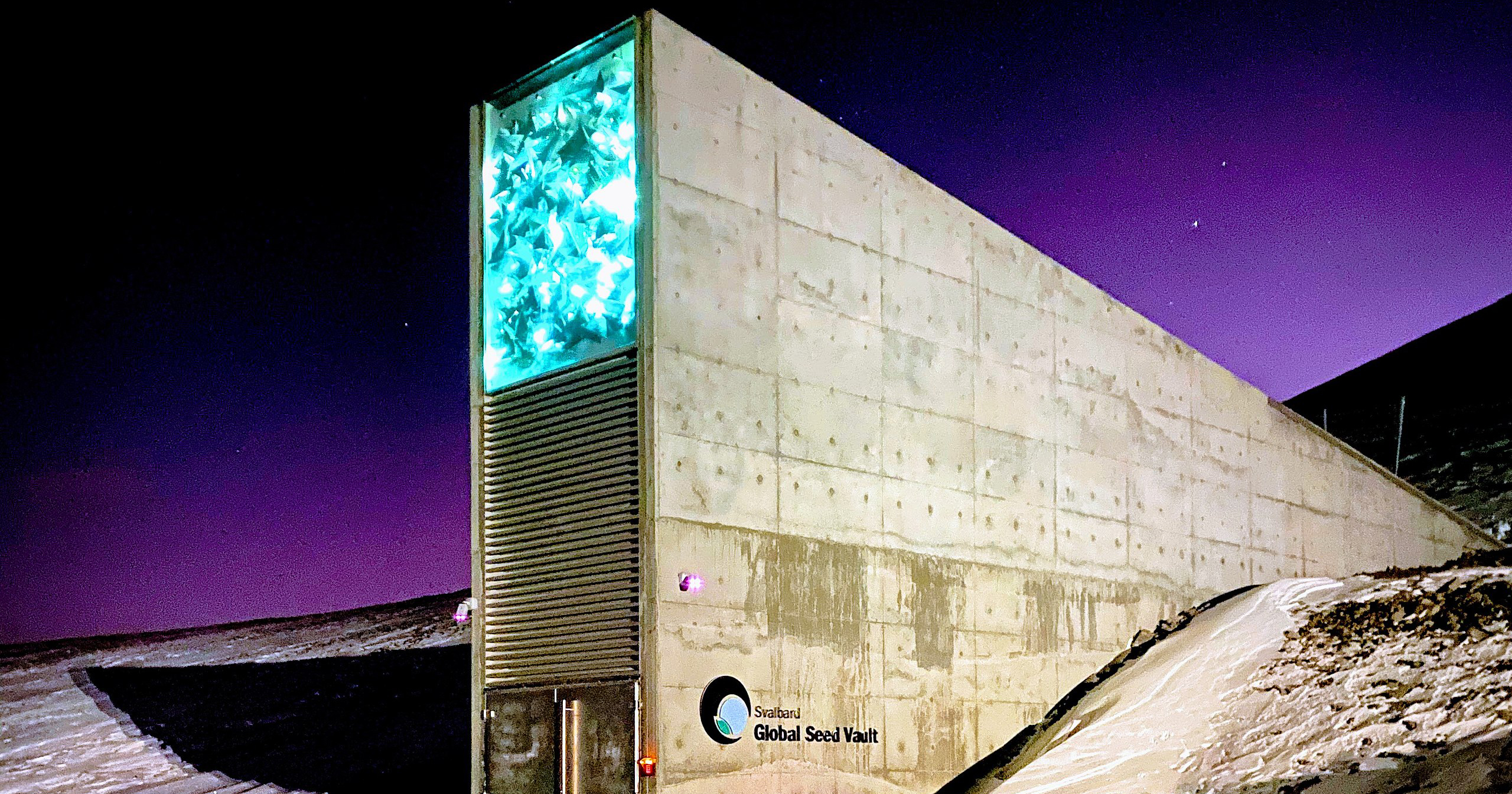Architects: Want to have your project featured? Showcase your work by uploading projects to Architizer and sign up for our inspirational newsletters.
More than anything, stairs are a functional feature of an architecture project — and, to the general public, not a very popular one at that. For those forced to walk up them, stairs can be tiring and challenging, but most of the time, there is no choice but to use them. For many users, there is something instinctual about the need to walk up them as quickly as possible in order to regain flatter ground. Yet, stairs are also a healthier choice than the alternatives (elevators and escalators) — they can improve the health of users and help buildings to cut back on their energy consumption.
Architects looking to make staircases appeal to users, should seek to creatively incorporate them into building design, making them as appealing as possible to potential users. Moreover, in outdoor spaces, a staircase can add color and delight to public places, encouraging gathering, community and the like. As the six projects below demonstrate, it’s possible to turn a functional structure into a social space and a place for artistic expression. Be it by playing with architectural motifs or traditional forms, the following staircases will make users want to walk up and down and back up again.
One Ocean
By soma architecture, Yeosu-si, South Korea
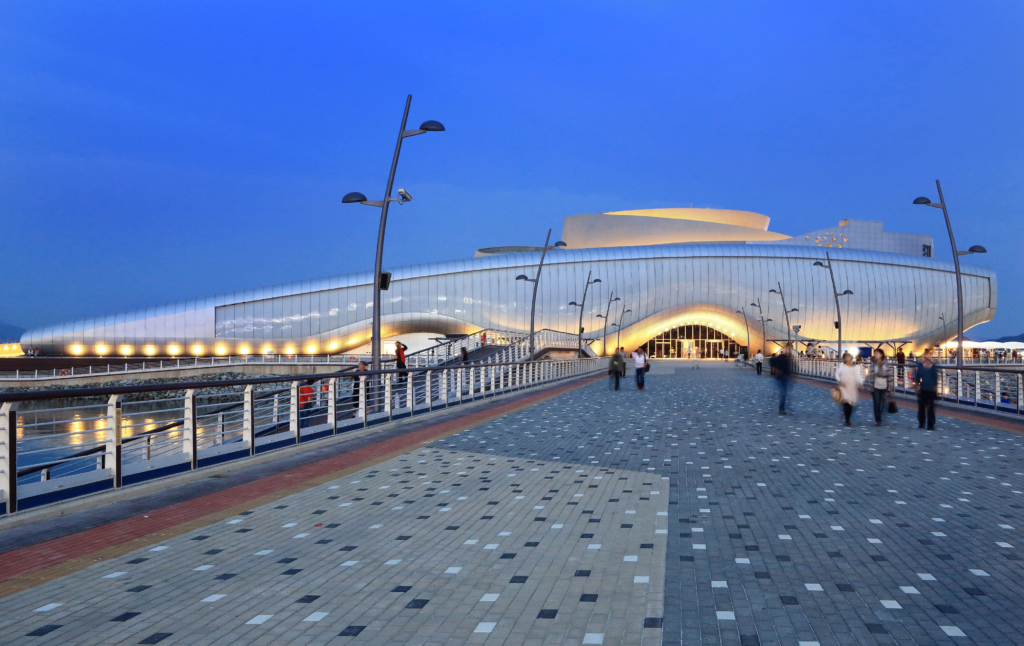
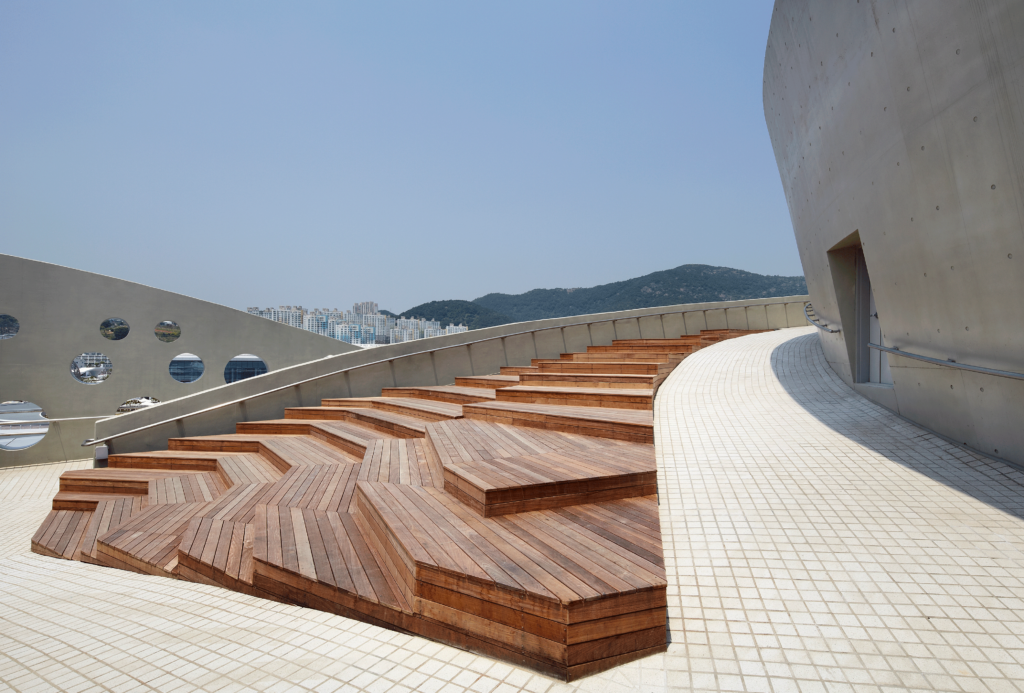 Sitting right on Yeosu’s coastline, the One Ocean Expo center mirrors all things aquatic. A silver-grey, biomimetic form emulating a fish lying on its side, a kinetic façade mimicking the waves nearby; swooping, whimsical curves imitating the meandering coastline are among its pelagic features. The hidden gem in this project is a uniquely shaped set of steps of glazed wood flanked by grey tiles. If the structure represents an aquatic body, then the stairs are the cascade that bring the water down to the ocean.
Sitting right on Yeosu’s coastline, the One Ocean Expo center mirrors all things aquatic. A silver-grey, biomimetic form emulating a fish lying on its side, a kinetic façade mimicking the waves nearby; swooping, whimsical curves imitating the meandering coastline are among its pelagic features. The hidden gem in this project is a uniquely shaped set of steps of glazed wood flanked by grey tiles. If the structure represents an aquatic body, then the stairs are the cascade that bring the water down to the ocean.
V&A Exhibition Road Quarter
By AL_A, London, United Kingdom
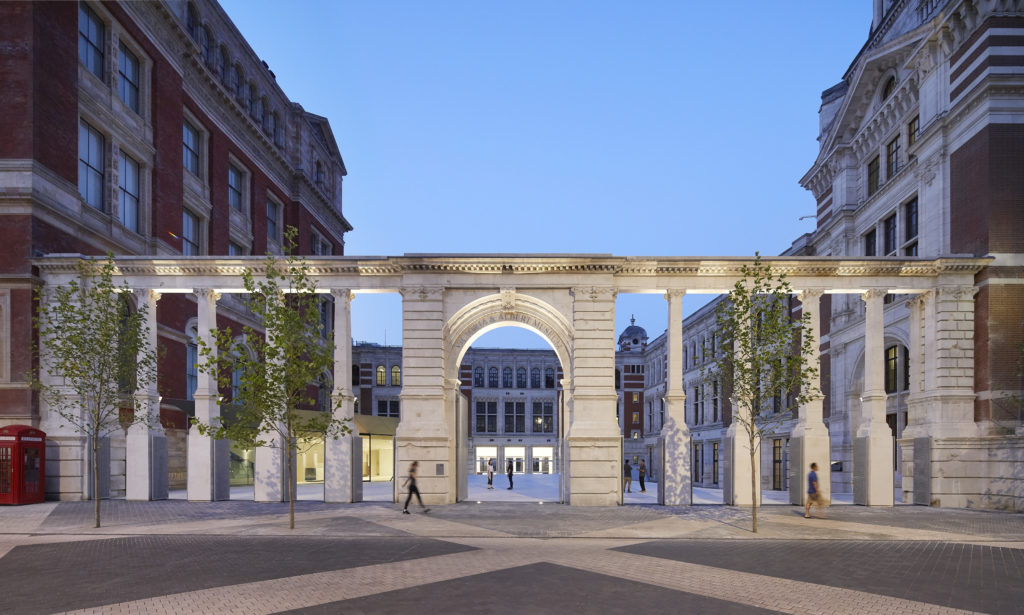
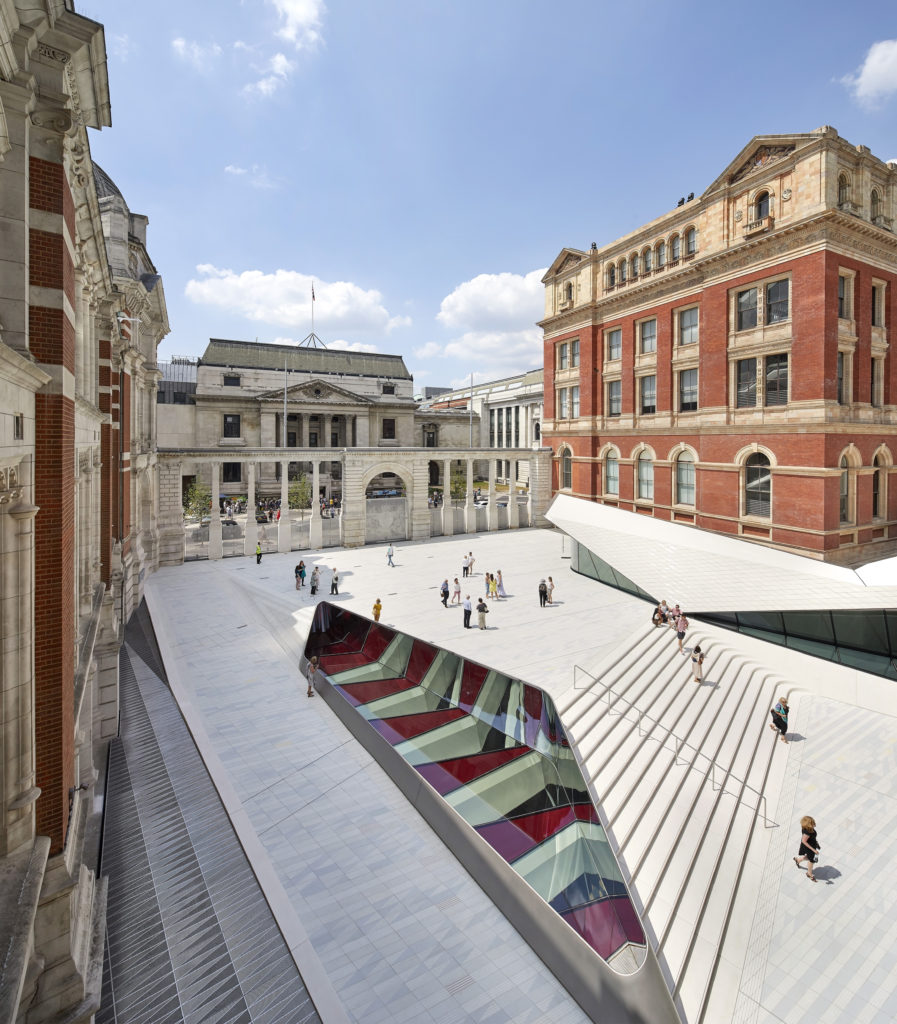
Photos by Hufton+Crow Photography
This recent renovation to the V&A in London transforms a former boiler house yard into the newest entrance to the Museum from Exhibition Road, the city’s great cultural artery. The new Sackler Courtyard is the world’s first porcelain courtyard, where 11, 000 handmade tiles — inspired by the ceramics at the V&A — paint the space a glistening white. A subtle incorporation is a new set of stairs which seamlessly merge the road level with the entrance level. These steps also cleverly counteract the angular new pavilions on both sides, whose angles are as steep as the stairs.
Tenri Station Plaza CoFuFun
By Nendo, Tenri, Japan
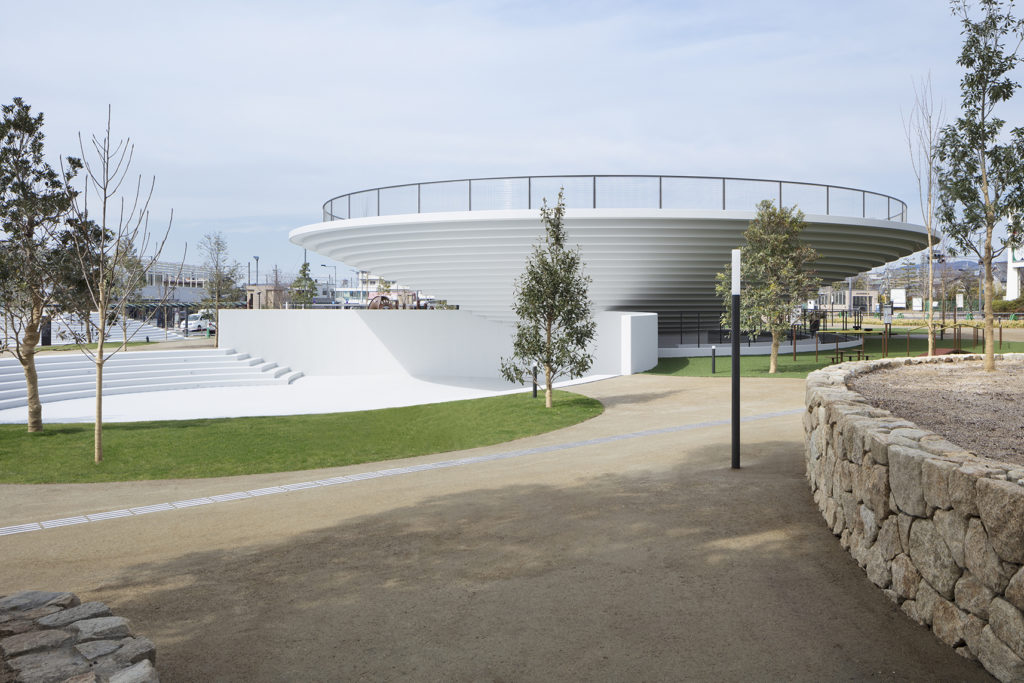
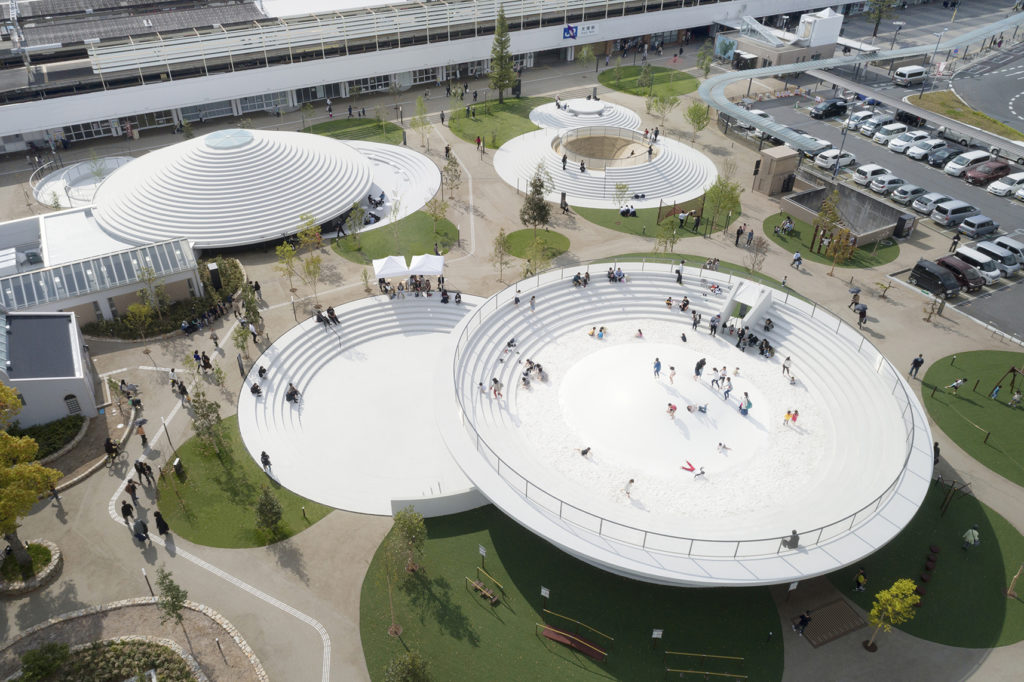 This new civic plaza in Tenri, Japan stands out for the saucer-like structures that sprout from the site. These are inspired by the forms of ancient Japanese tombs, known as “cofun” that constitute a rich part of the city’s landscape. But these structures are also lively and dynamic, with the circular precast concrete layers doubling as steps for exciting social activities inside them.
This new civic plaza in Tenri, Japan stands out for the saucer-like structures that sprout from the site. These are inspired by the forms of ancient Japanese tombs, known as “cofun” that constitute a rich part of the city’s landscape. But these structures are also lively and dynamic, with the circular precast concrete layers doubling as steps for exciting social activities inside them.
Mariehøj Cultural Centre
By SOPHUS SØBYE ARCHITECTS, Holte, Denmark
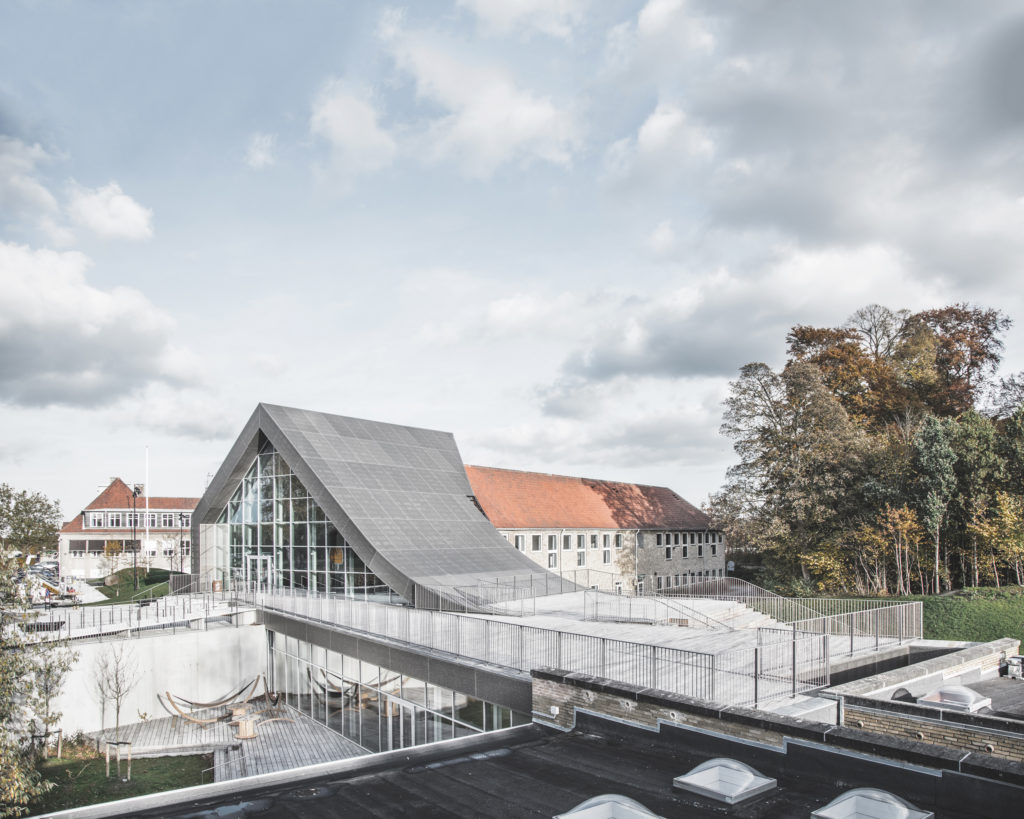
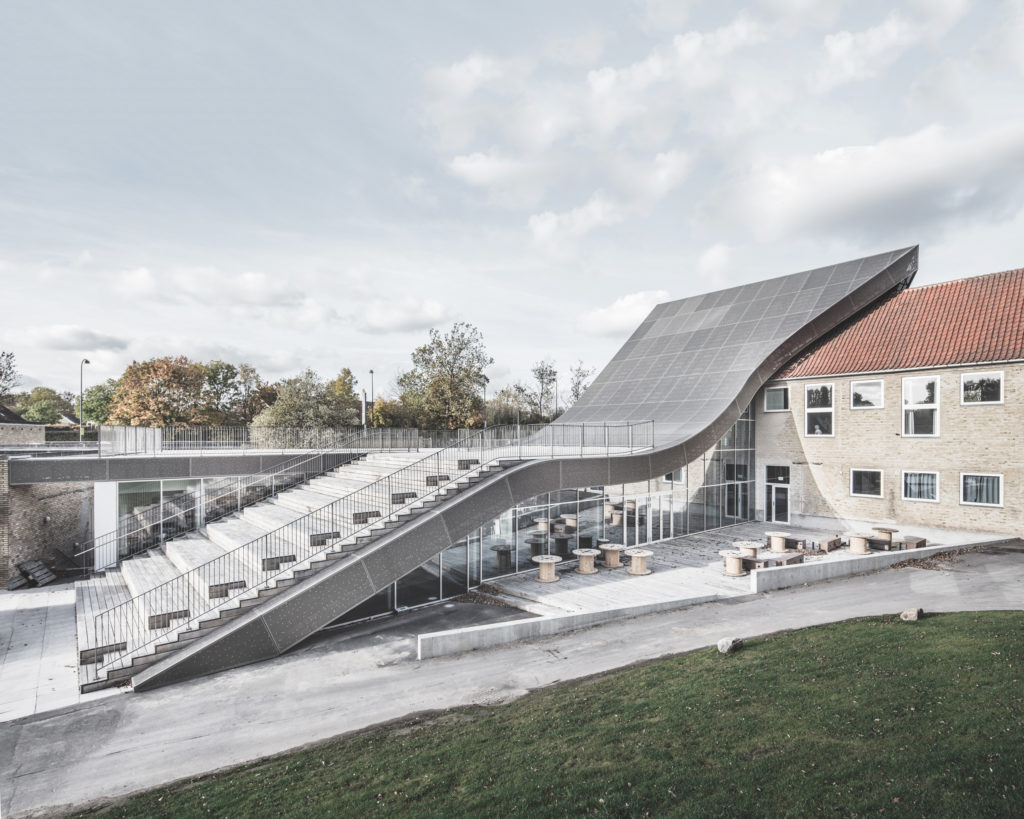
Photos by Rasmus Hjortshøj
The architects of the renovated Mariehøj Cultural Centre in Holte, Denmark wanted people to feel inspired by the site, thanks in part to the original new social spaces included in the design. Most noticeable is a wide curving strip of metal mesh that straddles the older building with a misleading suppleness. You could imagine that the structure had fallen into place like a loose ribbon. This creates a pocket of space underneath for a bright gathering room. Likewise, the new addition allows for wooden stairs above which serve as a new socializing space for the community.
Reconstruction and urban design of the Theater Square in Novi Sad
By DBA doo, Novi Sad, Serbia
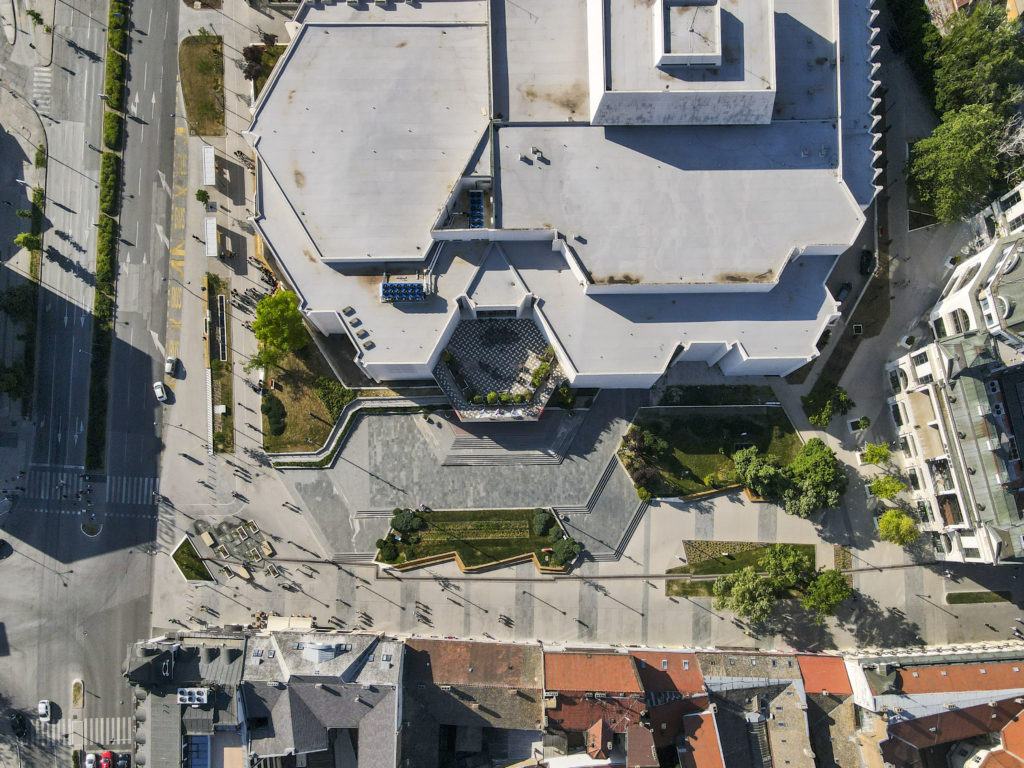
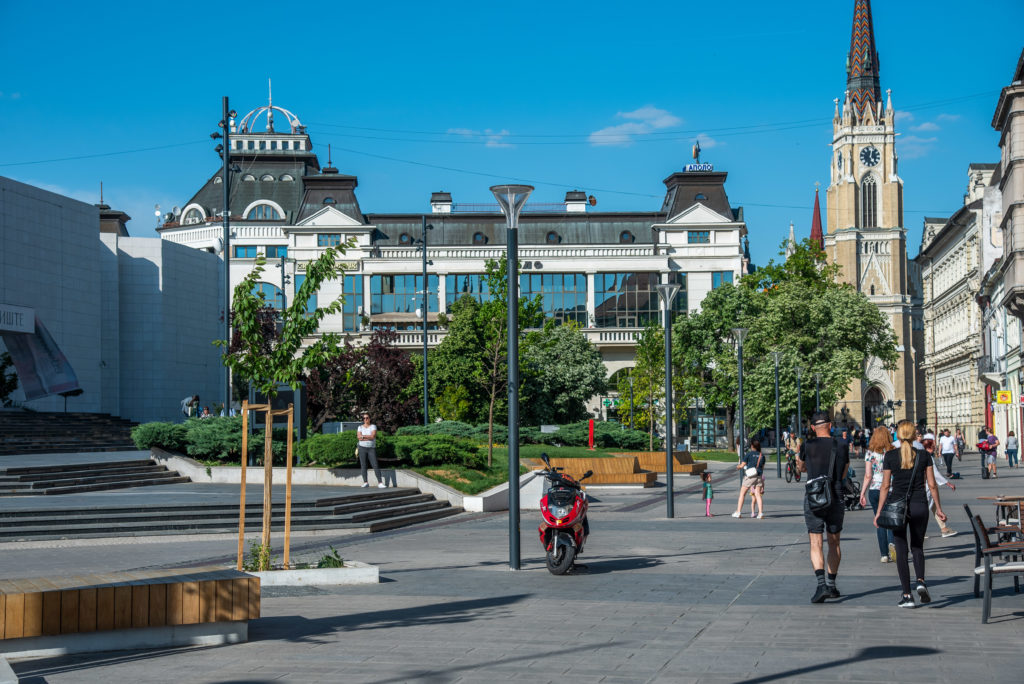
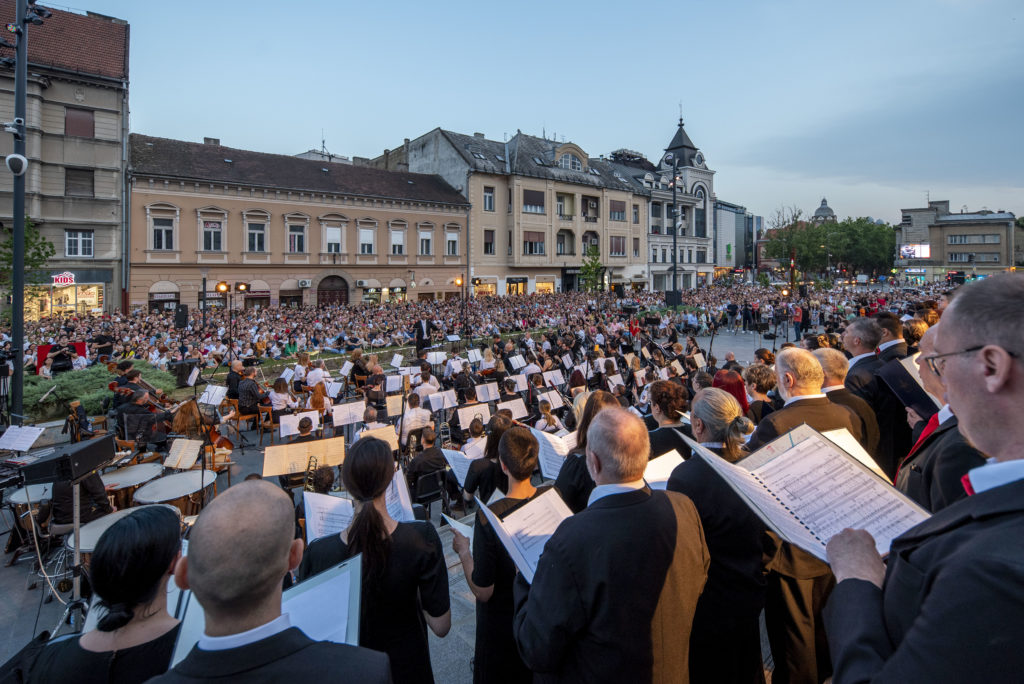
Photos by Aleksandar Milutinović
Located in the old downtown core of Novi Sad, Serbia, this new square turns a neglected portion of a street into a dynamic civic space. The granite surfaces of alternating shades frame colorful pockets of greenery, while wide strips of a few steps mimic the hexagonal patterns of the civic center. The steps add a vertical dimension to the square, not only making it more visually interesting by playing with perspective but also creating new opportunities for cultural engagement. Novi Sad’s opera has already taken the cue, using the broad steps as a stage to perform open-air concerts before the rest of the city.
The Healing City
By ADEPT, Yanzihu, China
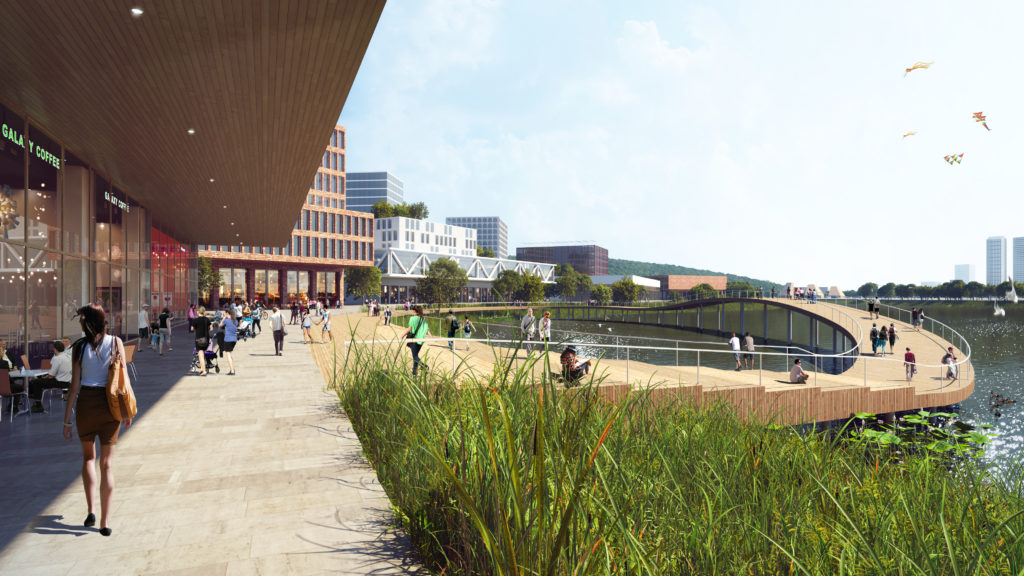
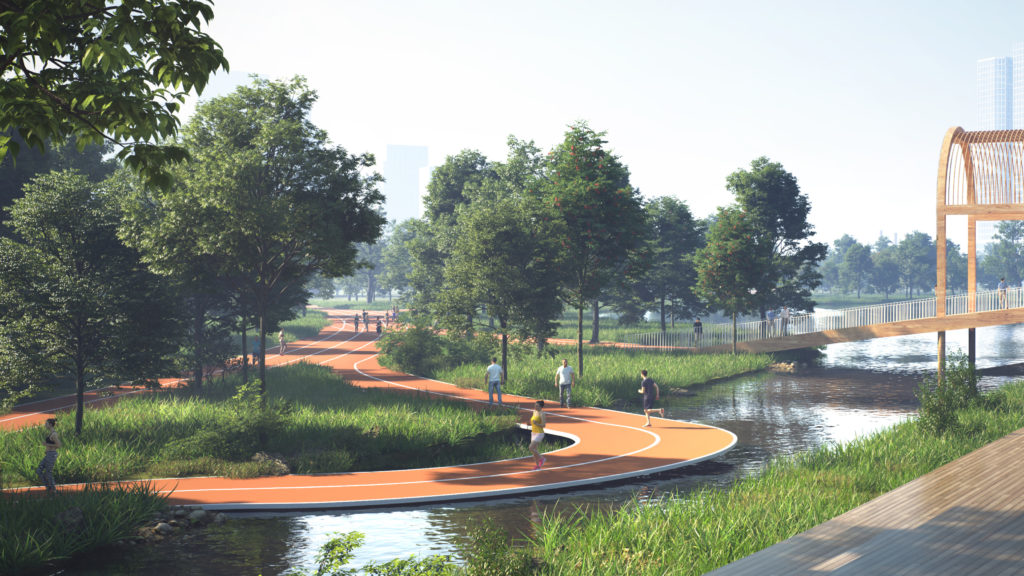 ADEPT’s conceptual masterplan for the city of Yanzihu seeks to redress the pressures caused by rapid urbanization by restoring nature to the city’s waterfront. The design brings together landscaped forests, aquatic plants and agriculture with serpentine walkways intended to make the greenery accessible to all. Fittingly, one defining architectural feature of the plan is a curving, swooping bridge hovering above the water. Along with its changes in elevation, the bridge incorporates cascading flat surfaces, creating convenient spaces to lie down and bask in the reclaimed natural surroundings.
ADEPT’s conceptual masterplan for the city of Yanzihu seeks to redress the pressures caused by rapid urbanization by restoring nature to the city’s waterfront. The design brings together landscaped forests, aquatic plants and agriculture with serpentine walkways intended to make the greenery accessible to all. Fittingly, one defining architectural feature of the plan is a curving, swooping bridge hovering above the water. Along with its changes in elevation, the bridge incorporates cascading flat surfaces, creating convenient spaces to lie down and bask in the reclaimed natural surroundings.
Architects: Want to have your project featured? Showcase your work by uploading projects to Architizer and sign up for our inspirational newsletters.
